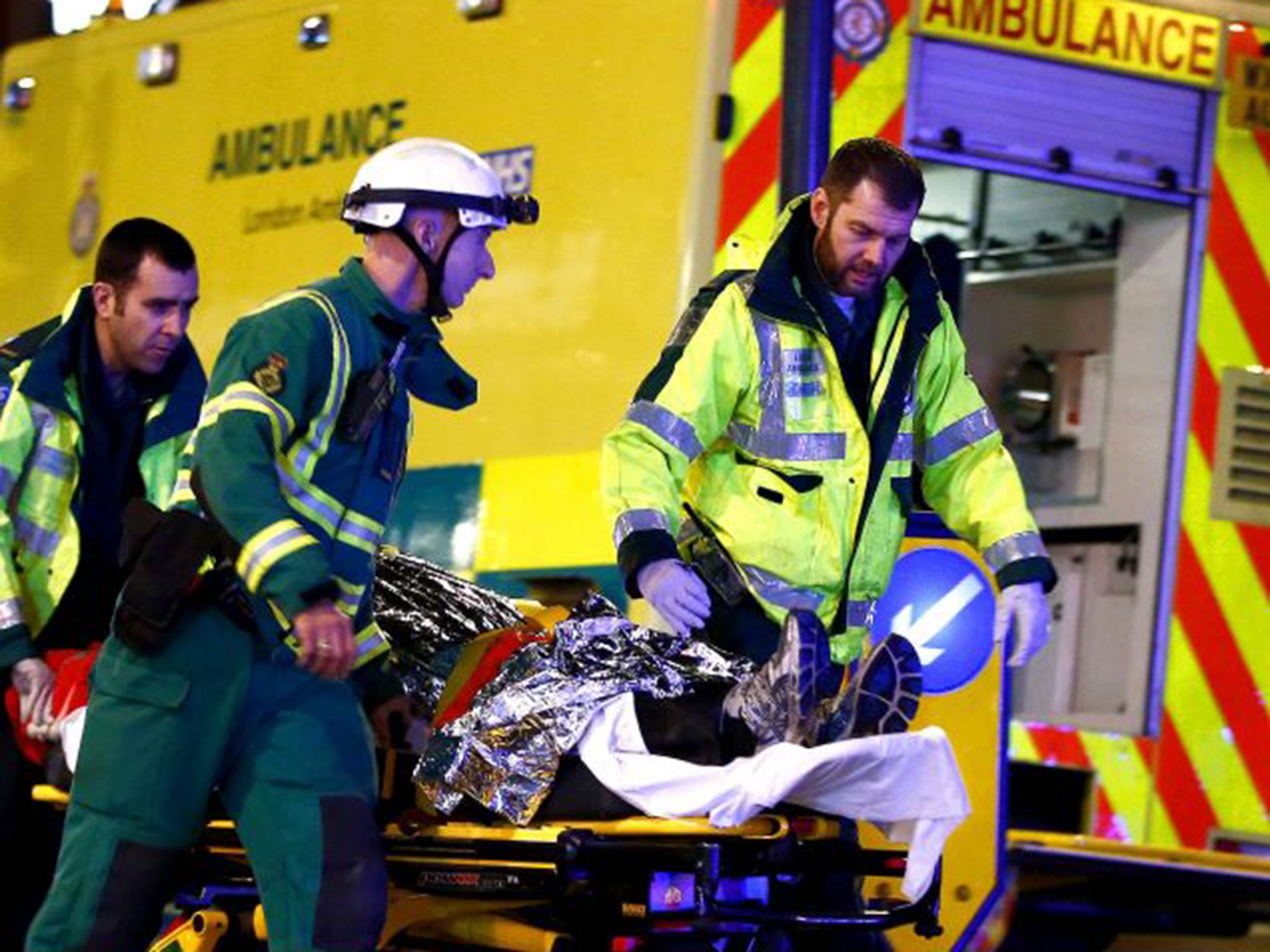When you call an ambulance during a mental health crisis, it's me who picks up. But it shouldn't be this way
‘Did you try calling your crisis team tonight Tracy?’ I asked tentatively. ‘Yeah, but I can never bloody get a hold of them,’ she responded

Two weeks ago I spoke to John. John was a paranoid schizophrenic who had missed his medication and was experiencing a psychotic episode. John believed staff in the hotel across the road from his flat were working for the police and refusing him access to his brother. I asked John if he was feeling violent towards anyone and he said he sometimes felt like stabbing the staff members across the road. Due to his unstable condition I stayed on the line until the police arrived, (they get called if there is a potential risk to our crew members) and an ambulance arrived shortly after. Calls like that from John are becoming increasingly more frequent and, unlike calls from weekend drunks, they can happen any day, at any time.
Between 2012 and 2015 the London Ambulance Service reported a 15 per cent increase in calls involving Mental Health. Similarly, the Care Quality Commission (2015) reported an increase in the number of people detained under Section 136 of the Mental Health Act from the previous year. This section refers to people who have been taken to a place of safety after experiencing a mental health crisis in a public place.
Social care group Community Care reported that from 2010-2015, NHS Mental Health trusts have seen a decrease in funding of 8.25 per cent in real terms across the board and a 5 per cent income drop for in-community mental health crisis teams. This is despite the fact that those teams saw a 20 per cent increase in referrals during the same period. Some teams report caseloads double the recommended limits while staffing levels have been reported as 70 per cent lower than what managers believe is needed to meet ‘national expectations’.
The Ambulance Service, attempting to deal with the increase in Mental Health calls, ran a pilot scheme in 2015 which saw Mental Health Nurses attached to control rooms respond to 1,804 calls in a three-month period. The aim is to expand this pilot by employing more mental health nurses who communicate with in-community mental health teams. Initiatives like this should be encouraged but should operate in conjunction with invaluable in-community support, rather than as a replacement.
Last week I spent over an hour on the phone talking to Tracy. She had taken an overdose of anti-psychotic medicine and had decided to call the ambulance service as she’d realised she didn’t want to die. She was alone in her apartment and told me she had been diagnosed with a personality disorder and was struggling to deal with her illness. As with John, I stayed on the line until help arrived. Tracy wasn’t as talkative as John and it soon devolved into long silences punctuated by me asking if she was still there. ‘Did you try calling your crisis team tonight Tracy?’ I asked tentatively. ‘Yeah, but I can never bloody get a hold of them,’ she responded.
All health and social services are interwoven, and cuts cannot be made to one, without a knock on effect on another. The more funding is cut for in-community support, the more people are slipping through the gap. Just as if someone is drunk and has fallen over, if someone has taken an overdose, feels suicidal or simply needs some help, we will get an ambulance to them and in many cases stay on the line until that help arrives. But wouldn’t it be better if the resources were there, in the community to help that person before it even has to come to that?
The views expressed in this article are my own and not representative of the London Ambulance Service. Names have been changed to protect those involved.



Join our commenting forum
Join thought-provoking conversations, follow other Independent readers and see their replies